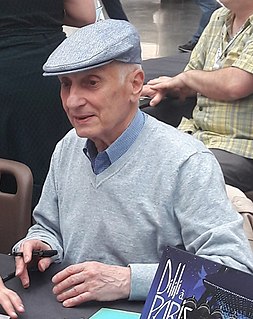A Quote by Kate Bernheimer
In the old fairy tales, often a 'moral' was tacked on at the end of the story - say, if a book was going to be marketed to young readers. And the morals don't really suit the stories at all, which makes them super weird - part of why I love the tradition so much. I do play with this, though I am more concerned with ethics than morals.
Related Quotes
Though now we think of fairy tales as stories intended for very young children, this is a relatively modern idea. In the oral tradition, magical stories were enjoyed by listeners young and old alike, while literary fairy tales (including most of the tales that are best known today) were published primarily for adult readers until the 19th century.
I love monsters, I love creatures, I love beings, I love aliens. That's more supernatural and more the stuff of fairy tales. Fairy tales are as ancient as we are. I love those stories. I think they're really interesting because they always have more than simply the fright aspect. There's something deeply psychological.
I grew up with Bible stories, which are like fairy tales, because my father was a minister. We heard verses and prayers every day. I liked the gorier Bible stories. I did have a book of Chinese fairy tales. All the people except the elders looked like Italians. But we were not a family that had fiction books.
I have been writing fairy tales for as long as I can remember. Not much has changed in terms of my natural attraction to the narrative techniques of fairy tales. My appreciation of them in the traditional stories has deepened, especially of flat and unadorned language, intuitive logic, abstraction, and everyday magic.
Real life is a story, too, only much more complicated. It’s still got a beginning, a middle, and an end. Everyone follows the same rules, you know. . . It’s just that there are more of them. Everyone has chapters and cliffhangers. Everyone has their journey to make. Some go far and wide and come back empty-handed; some don’t go anywhere and their journey makes them richest of all. Some tales have a moral and some don’t make any sense. Some will make you laugh, others make you cry. The world is a library, young Poison, and you’ll never get to read the same book twice.


































